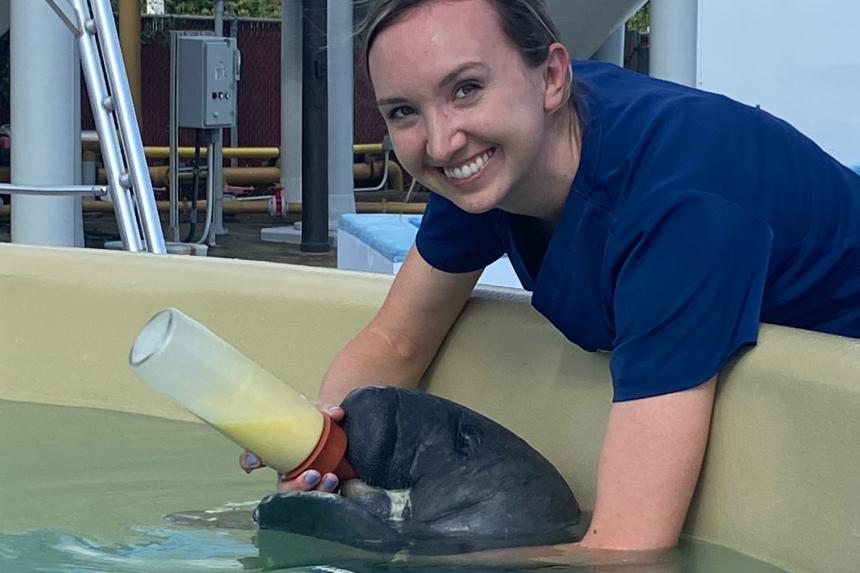In the News

February 14, 2024
Cornell University’s College of Veterinary Medicine announced a gift of $35 million to support the Cornell Wildlife Health Center, which has been renamed to the Cornell K. Lisa Yang Center for Wildlife Health in recognition of the scale of commitment to planetary health from the donor, Lisa Yang.

February 09, 2024
This summer, I embarked on an unforgettable journey into the heart of aquatic veterinary medicine with Dr. Tim Miller-Morgan at the Hatfield Marine Science Center (HMSC) in Newport, Oregon. The center is Oregon State University’s coastal campus, also serving as a marine science laboratory and an oceanographic research base for six state and federal agencies....

January 30, 2024
A transformational gift from philanthropist and Cornell alumna K. Lisa Yang ’74 will endow and rename the Cornell Wildlife Health Center as the Cornell K. Lisa Yang Center for Wildlife Health at the College of Veterinary Medicine.

November 08, 2023
For my last summer before clinical rotations, I wanted to gain experience with marine animals. I was accepted as an intern with the International Fund for Animal Welfare (IFAW) Marine Mammal Rescue & Research (MMRR) program in Cape Cod, Massachusetts, a unique geographical area where tides and coastlines can suddenly trap a dolphin or whale in inches of water....

October 25, 2023
I started veterinary school with the goal of working with stingrays, dolphins, and fish. Now, four years later, I can say I have worked at some of the top aquariums and other aquatic facilities in the country and connected with colleagues who are leading this field.

Video
October 23, 2023
In this eCornell webinar, Dr. Steve Osofsky, Dr. Krysten Schuler, and Dr. Jennifer Bloodgood of the Cornell Wildlife Health Center at the Cornell College of Veterinary Medicine share their experiences from the field and the lab to illustrate how the health of wildlife and our own health are inextricably linked.

October 11, 2023
We strap on our snorkel gear and jump into the blue. It only takes a few butterfly kicks to reach a citadel bustling with life. Within seconds, we are greeted by branching, massive, and laminar structures formed by hundreds of genetically identical individuals....

News
August 18, 2023
While she’s now nearing the completion of a two-year Veterinary Fellowship at the National Aquarium, Sarah Balik ‘15, DVM ‘19, clearly recalls experiences she had as a Cornell veterinary student that set her on her current path.

News
June 29, 2023
Cornell alumna Tatiana Weisbrod, DVM ‘17, once thought medical school was in her future, until she came across the Cornell AQUAVET® program, which changed the trajectory of her career.

May 01, 2023
Kristina Ceres' extensive research, from cattle with tuberculosis to the critically endangered great hammerhead shark, led the Wildlife Disease Association to select Ceres for a Graduate Student Scholarship Award, which recognizes outstanding academic accomplishment and future potential in wildlife research.
